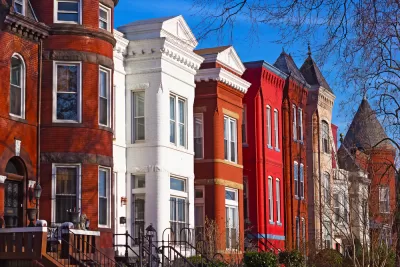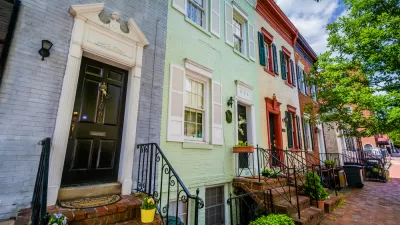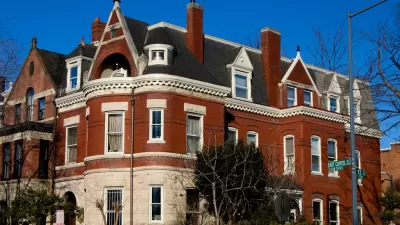David Alpert argues for a more rigorous definition for what is not historic. Without one, developers and property owners have no way to know what buildings can't or won't be given the designation.

Washington, D.C.'s Historic Preservation Office (HPO) has documented what makes a building historic, but they haven't done much to clarify what makes a building "not historic." To David Alpert, that's a problem. "It's clear that sometimes, the motivation of those seeking landmark protection is more about blocking development than honoring history," Alpert writes in Greater Greater Washington.
While Alpert concedes that preservation has a place in making a vital city, he worries that by not setting a floor, the HPO creates ambiguity for developers and may slow building. "A broader concern, with so many landmark applications and especially so many in exclusionary Tenleytown, is that almost any building tells the story of something," Alpert argues. Some buildings that were submitted for a historic designation were rejected, but there are so few that it's hard to know what the floor is for the consideration.
FULL STORY: Is anything old not “historic”? Preservation doesn’t have a good answer

Maui's Vacation Rental Debate Turns Ugly
Verbal attacks, misinformation campaigns and fistfights plague a high-stakes debate to convert thousands of vacation rentals into long-term housing.

Planetizen Federal Action Tracker
A weekly monitor of how Trump’s orders and actions are impacting planners and planning in America.

San Francisco Suspends Traffic Calming Amidst Record Deaths
Citing “a challenging fiscal landscape,” the city will cease the program on the heels of 42 traffic deaths, including 24 pedestrians.

Defunct Pittsburgh Power Plant to Become Residential Tower
A decommissioned steam heat plant will be redeveloped into almost 100 affordable housing units.

Trump Prompts Restructuring of Transportation Research Board in “Unprecedented Overreach”
The TRB has eliminated more than half of its committees including those focused on climate, equity, and cities.

Amtrak Rolls Out New Orleans to Alabama “Mardi Gras” Train
The new service will operate morning and evening departures between Mobile and New Orleans.
Urban Design for Planners 1: Software Tools
This six-course series explores essential urban design concepts using open source software and equips planners with the tools they need to participate fully in the urban design process.
Planning for Universal Design
Learn the tools for implementing Universal Design in planning regulations.
Heyer Gruel & Associates PA
JM Goldson LLC
Custer County Colorado
City of Camden Redevelopment Agency
City of Astoria
Transportation Research & Education Center (TREC) at Portland State University
Jefferson Parish Government
Camden Redevelopment Agency
City of Claremont





























